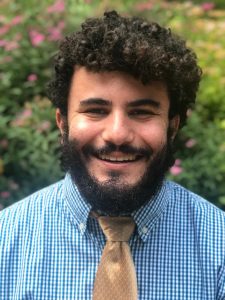 My name is Tate Rosenblatt, and I am a junior from Charlotte, North Carolina, majoring in Psychology and Political Science with a minor in Spanish. In addition to my classes, I work as a writing coach at the UNC Writing Center and I am a member of the Attorney General’s Staff, where I represent students who are accused of Honor Code violations. Through both roles, I get to work with students one-on-one as they go through extremely stressful environments. Underlying mental health challenges often make these tough situations even more difficult. After graduating, I plan to attend law school, and my work on the Attorney General’s Staff has helped me realize how closely linked the fields of justice and psychology are. Working at Lepage Associates has given me the opportunity to learn more about the considerable overlap between the two.
My name is Tate Rosenblatt, and I am a junior from Charlotte, North Carolina, majoring in Psychology and Political Science with a minor in Spanish. In addition to my classes, I work as a writing coach at the UNC Writing Center and I am a member of the Attorney General’s Staff, where I represent students who are accused of Honor Code violations. Through both roles, I get to work with students one-on-one as they go through extremely stressful environments. Underlying mental health challenges often make these tough situations even more difficult. After graduating, I plan to attend law school, and my work on the Attorney General’s Staff has helped me realize how closely linked the fields of justice and psychology are. Working at Lepage Associates has given me the opportunity to learn more about the considerable overlap between the two.
Lepage Associates is a private psychological practice specializing in solutions-based care. As my mentor, Dr. Bailey Cole, explained to me, solutions-based care places an emphasis on providing the client with concrete skills and strategies to manage whatever challenge caused them to seek help. This focus on trying out new skills echoes some of what I’ve learned about Cognitive Behavioral Therapy in class but seems to overlap even more with the coaching philosophy we use at the Writing Center. This means that while I won’t get to work directly with any clients at Lepage Associates, I have been able to see how effective a similar approach is in a different context.
At Lepage, my weekly duties consist of meeting with Dr. Cole and working on various projects for both him and other psychologists. Our meetings give me the opportunity to ask questions and learn about various aspects of the field of psychology, especially how it interacts with the criminal justice system. Before Lepage, Dr. Cole worked at a correctional institution where, among other things, he conducted evaluations of sex offenders to determine how likely they were to re-offend. I have been able to ask him about his work both in the prison system and at Lepage, including the factors that go into different types of assessments and evaluations. Just last week, we looked at the test used to determine whether someone is competent to stand trial and talked about the standard for finding someone not guilty by reason of insanity.
In addition to our conversations, I am working on a number of projects for various psychologists. Most often, I will write up notes from clinical or collateral interviews into a formal report, which either goes in a client’s records or is used in court proceedings. Custody evaluations, where a judge is determining whether a parent is capable of raising their child, are common. I also conduct research into particular cases as needed, and I recently helped Dr. Lepage put together a presentation for lawyers on dealing with clients who have personality disorders.
So far, no two weeks at Lepage Associates have been the same. I am constantly learning new things about the practice of psychology and its connections to the justice system, as well as getting to experience people’s lives and the challenges they deal with daily. I look forward to the rest of my semester here, and I cannot wait to see what else I will learn!
